Charlie and the Chocolate Factory Review
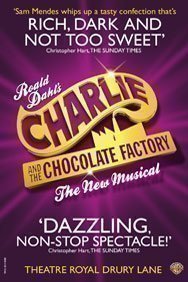 Whilst parts of this show draw you in to a world of pure imagination, other parts leave you with that sickly sweet feeling as if you’ve eaten too much chocolate. Bring the performers up to the level of the production design.
Whilst parts of this show draw you in to a world of pure imagination, other parts leave you with that sickly sweet feeling as if you’ve eaten too much chocolate. Bring the performers up to the level of the production design.
As a child I loved to read – I still do love a good book but just can’t seem to find the time anymore. But back when life seemed so much simpler, my favourite author (like so many children from my generation) was Roald Dahl. I must have re-read some of his books a hundred times and got completely drawn into his world of fantasy and the macabre. Dahl’s books are so well-known that 2 of them are currently West End hits and none is more famous than Charlie and the Chocolate Factory – not just a book and a musical but 2 incredibly popular films as well.
The storyline to this production is of course lifted directly from the novel. Charlie Bucket is a happy and grateful child despite his family living in poverty. So when the most famous chocolate factory in the world opens its doors to the 5 lucky children that find a golden ticket hidden in its chocolate bars, Charlie dreams of winning one of those elusive prizes to explore the most imaginative place on earth. Against all odds, he gets his wish and lines up with 4 other lucky winners and family members to explore Willy Wonka’s Chocolate Factory and the wonders that are held inside, guided round by the crazy inventor himself.
As soon as I walked into the Theatre Royal Drury Lane and saw the brightly coloured, iconic purple Wonka chocolate bars on sale I knew that this production wasn’t going to deliver a half-hearted show. The theatre itself is one of the most opulent in the entire West End; it just seems to be the perfect fit for big budget productions. My first impression of the show was just how complex and vivid both the set and costumes were. Mark Thompson has concocted some incredibly creative staging that moves and rotates effortlessly – making something this complicated seem simple takes real talent. With my own ideas about how this magical world should look, I was most excited to see two scenes in particular; how will a stage show pull off a flying glass elevator and a chocolate waterfall? The first design was executed perfectly, with a glowing, fluorescent box that Willy Wonka and Charlie used to soar across the night sky at the end of the show. Coupled with the show’s iconic song, ‘Pure Imagination’, this had the potential of being the most powerful scene in the whole production.
Mark Thompson has concocted some incredibly creative staging that moves and rotates effortlessly – making something this complicated seem simple takes real talent.
The latter design was by comparison disappointing; the whole scene just didn’t have the wow factor that the rest of the set had. It might be unfair of me to pick out this one design flaw in an otherwise astounding set complete with futuristic labs, robots and squirrels. In my opinion however, this scene is so well-known that every audience will have a really vivid idea of how the waterfall and the edible meadow should look like – sometimes real life just can’t live up to imagination. Credit to the show though, I was very quickly delighted again when the Oompa Loompa’s made their first appearance on top of a huge mechanical set of copper pipes for Augustus Gloop’s untimely exit. The production team has been very clever here by not trying to copy any previous versions of these iconic characters. They use some ingenious tricks to make the Oompa Loompa’s look small in stature and collectively these actors have the best voices in the cast, adding some drama and excitement to the songs.
The fact that these cast members were vocally my favourite is both a celebration that the ensemble here is really strong and a criticism that the main cast are actually quite weak. Unfortunately, the biggest culprit for this was Willy Wonka (Alex Jennings) himself. Jennings had a really interesting interpretation of the eponymous character, much darker than a child would ever imagine him to be. But he very clearly couldn’t sing and didn’t wherever possible. He spoke a lot of the vocal lines but couldn’t get away with that in ‘Pure Imagination’ – this should have been the climax to the production but instead fell far too flat (much like his voice). The children delivered their characters with varying levels of success – Violet Beauregarde (Lauren Halil) was unintelligible in ‘Double Bubble Duchess’, Augustus Gloop (Alexzander Griffiths) and Veruca Salt (Hannah Howland) were played as expected. Mike Teavee (Innis Robertson-Pinnell) was the strongest of the children with some great dance moves and hyperactive levels of energy. Charlie Bucket (Rhys Lambert) as the star did lead the children from the front, but was obviously a product of a stage school and didn’t deliver a believable performance.
It’s always difficult to put on a production of such a well-known and well-loved story; a child’s imagination is very stiff competition indeed. The backstage elements lived up to the challenge, but that’s not enough to make a credible performance for me. You have to have a strong cast with leading actors that deliver and this set of talented performers just fell short.
Latest News
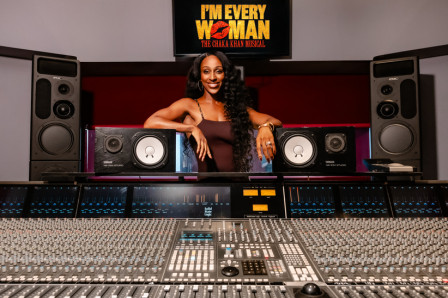
 I'M EVERY WOMAN - THE CHAKA KHAN MUSICAL moves London premiere to Hackney Empire
2 March 2026 at 16:12
I'M EVERY WOMAN - THE CHAKA KHAN MUSICAL moves London premiere to Hackney Empire
2 March 2026 at 16:12
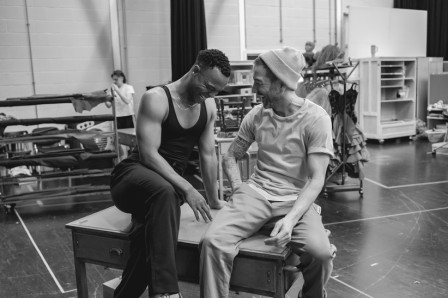
 KINKY BOOTS at London Coliseum - Rehearsal images released
2 March 2026 at 13:57
KINKY BOOTS at London Coliseum - Rehearsal images released
2 March 2026 at 13:57
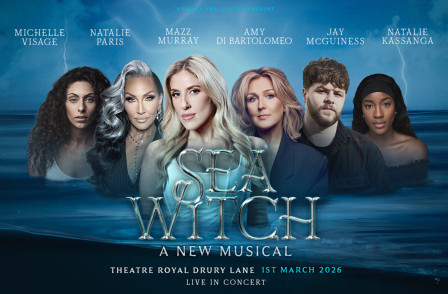
 Review: SEA WITCH at Theatre Royal Drury Lane
2 March 2026 at 12:07
Review: SEA WITCH at Theatre Royal Drury Lane
2 March 2026 at 12:07
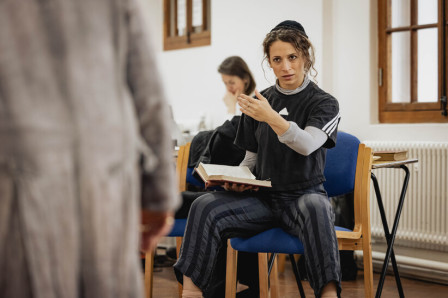
 YENTL at Marylebone Theatre - Rehearsal images released
2 March 2026 at 08:25
YENTL at Marylebone Theatre - Rehearsal images released
2 March 2026 at 08:25
